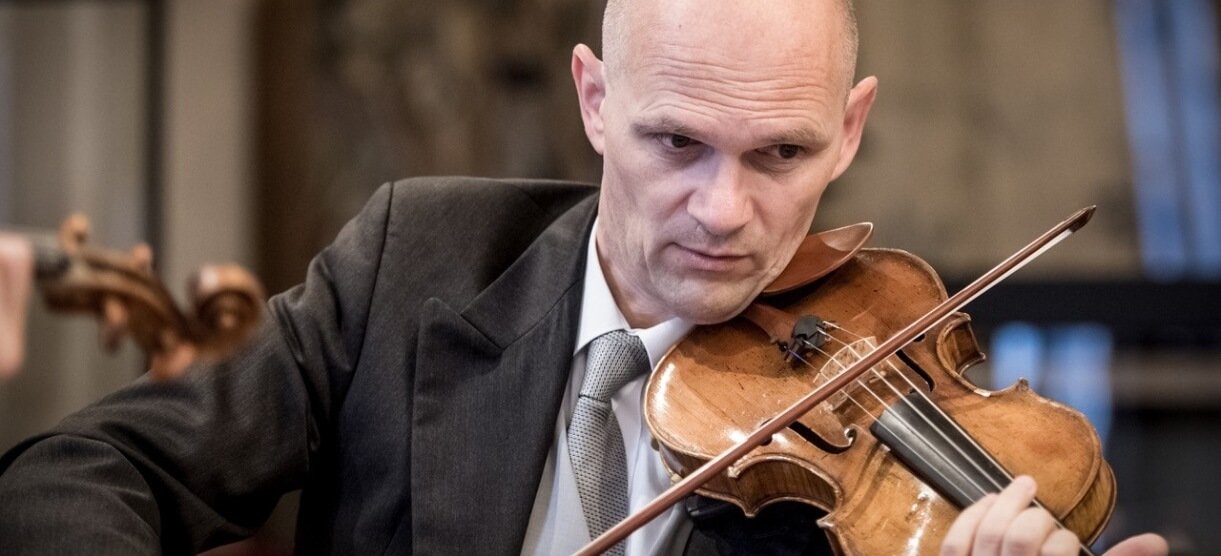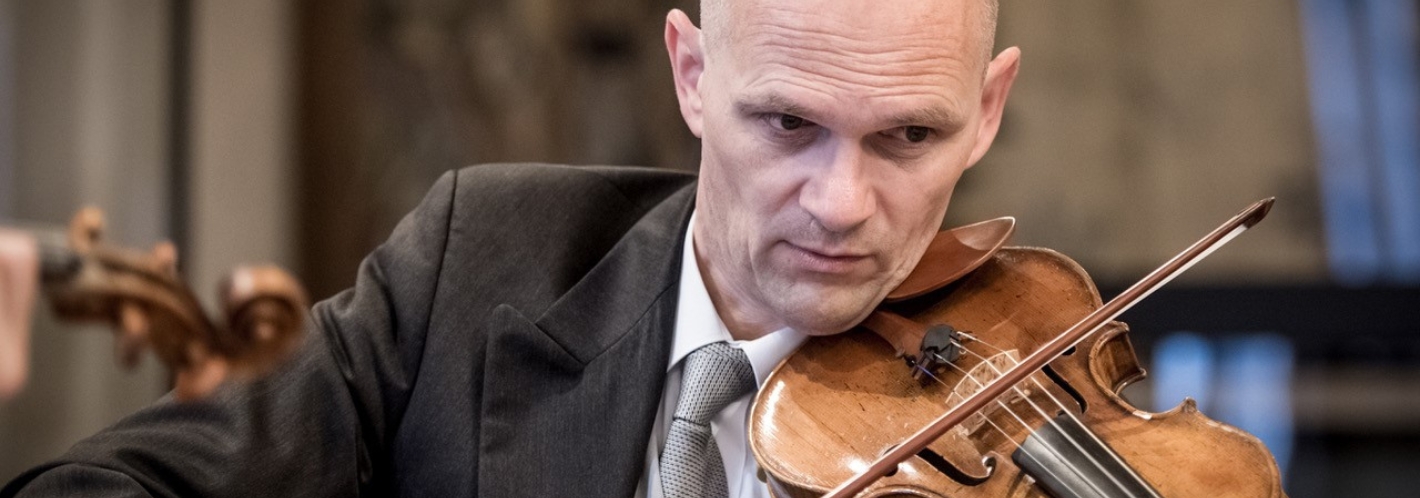
A CHAMBER MUSIC MASTERCLASS WITH MEMBERS OF THE VIENNA PHILHARMONIC
Chamber music is the noblest performing discipline. It is enormously difficult to develop the ability to listen to one’s musical colleagues, to react to their breathing, to perceive time and sound, and at the same time to build consensus for one’s own musical ideas, and that is why chamber ensembles need a lot of time for the players to become accustomed to each other. It is said that whoever has not gone through playing chamber music is not a complete musician.
This will again be proven by chamber music masterclasses led by three members of the Vienna Philharmonic, violinists Milan Šetena and Martin Kubik and cellist Edison Pashko. For the classes, they have selected works for different combinations of instruments – Dvořák’s String Quartet No. 10 in E flat major, Brahms’s String Quintet No. 2 in G major, and a Schulhoff’s String Sextet for two violins, two violas, and two cellos. And since, as we have said, chamber music takes time, the masterclasses will be spread over several days, climaxing on 23 September 2024 with an appearance by the individual ensembles at a concert at The Academy of Performing Arts in Prague.
Those interested in active participation can apply by sending a CV (max. 900 characters) to the email address stehlikova@dvorakovapraha.cz by 31 July 2023. The age limit for participants is 28.
Public masterclasses are yet another way that the Academy of Classical Music at the Dvořák Prague Festival is working to promote the education of musicians. As an auxiliary programme in the series For the Future, it gives young musicians the chance to play before exceptional artists and to consult on their views on the interpretation of a work with performers who have invaluable experience on the world’s great stages. A masterclass is a unique opportunity for the public to witness the final phase of preparing an interpretation. Rather than a usual lesson, it is an exchange of artistic opinions. It gives an exciting insight into the final phase of a young artist’s preparation before the moment when her or she appears in the concert arena with a finished interpretive conception in order to share an artistic opinion with the public.
Martin Kubik was born in Düsseldorf in 1967. He grew up in Vienna and began receiving private lessons in 1974 from the legendary Professor Alfred Staar, a member of the Vienna State Opera Orchestra, the Vienna Philharmonic, and the Weller Quartet. Starting in 1981, he also studied with Professor Clemens Hellsberg, also a member of the Vienna Philharmonic. Martin Kubik attended the Vienna Music Gymnasium and, in addition to the violin, also delved into the study of trombone and composition.
In 1985, he won the audition for the position of Second Violinist in the Vienna State Opera Orchestra, becoming the youngest member of this orchestra and, three years later, also a member of the Vienna Philharmonic. In 1986, he graduated from the Music Gymnasium with honors. In 1992, after a successful audition, he joined the First Violin section of the Vienna Philharmonic.
As an enthusiastic chamber musician, Martin Kubik was a member and later leader of the Philharmonia Schrammeln Wien from 1990 to 2010. He performed with ensembles such as the Otto-Nicolai Quartet, the Straka Ensemble, the Wiener Streichersolisten, Wiener Geigenquartett, and the Ensemble Kontrapunkte on both national and international stages.
He co-founded the Salzburg-Wien Ensemble with members of the Mozarteum Orchestra Salzburg, which regularly performs at the festivals on Burg Golling, co-founded by Martin Kubik.
In addition to his roles with the Vienna Philharmonic and in chamber music ensembles, Martin Kubik is a sought-after lecturer for audition preparation and chamber music. He regularly teaches, among other places, at the Summer Academy of the Angelika Prokop Foundation in Salzburg, led by members of the Vienna Philharmonic. In May 2019, Martin Kubik was awarded the title of professor by the Austrian President Alexander Van der Bellen.
source: Martin Kubik

The Music and Dance Faculty (HAMU) of the Academy of Performing Arts in Prague was established in 1945 as one of the Academy’s three components, following on from the Prague Conservatory master school (the second oldest institution of its kind in Europe). HAMU is located in the heart of Prague’s historic centre, in the premises of Lichtenstein Palace and Hartig Palace.
The Gallery is a concert hall for about 130 listeners with two Steinway pianos and a harpsichord located in the basement of the palace, a large vaulted hall. The Gallery is used primarily for chamber concerts.